 To understand Trinidad, there can be no fixed, predetermined “root identity” in the traditional, categorical sense. The island’s culture claims its right to opacity, resisting simplification, even while its core remains Creole. Too many people, too many cultures have met - and clashed - across its ports and borders. For this reason, Trinidad cannot be singular; it is plural, maternal. Like a mother, it tells stories, at first misunderstood by its children, yet always offering a lesson. Like a mother, it lets its children wander before calling them back to the tropics. This island is a birth of worlds.
To understand Trinidad, there can be no fixed, predetermined “root identity” in the traditional, categorical sense. The island’s culture claims its right to opacity, resisting simplification, even while its core remains Creole. Too many people, too many cultures have met - and clashed - across its ports and borders. For this reason, Trinidad cannot be singular; it is plural, maternal. Like a mother, it tells stories, at first misunderstood by its children, yet always offering a lesson. Like a mother, it lets its children wander before calling them back to the tropics. This island is a birth of worlds.
01.09.2025 | by Carlotta Pisano
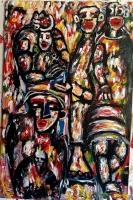 Dear racialized friend, we both feel the weight, so let me end here as it’s getting late, when we talk about racism, whiteness and privilege, don't ever forget to create contexts, don't repeat the same claims as if they were refrains, don't talk about the system as if it operated and oppressed in the same way everywhere, with no aims or changes or such affairs, or as if the context of blacks in the USA was the same as that of blacks in Portugal, and of blacks in Brazil, and from there to blacks in Guinea.
Dear racialized friend, we both feel the weight, so let me end here as it’s getting late, when we talk about racism, whiteness and privilege, don't ever forget to create contexts, don't repeat the same claims as if they were refrains, don't talk about the system as if it operated and oppressed in the same way everywhere, with no aims or changes or such affairs, or as if the context of blacks in the USA was the same as that of blacks in Portugal, and of blacks in Brazil, and from there to blacks in Guinea.
04.06.2025 | by Marinho de Pina
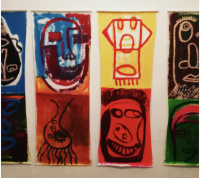 The Black body is one of the boring, limiting terms that abound in decolonial discourse. The fact that it is an unknown or almost unknown term in Guinea-Bissau (I’ve no idea if I need statistics to say this), makes me wonder: how do you decolonize Africa without Africans being involved?
The Black body is one of the boring, limiting terms that abound in decolonial discourse. The fact that it is an unknown or almost unknown term in Guinea-Bissau (I’ve no idea if I need statistics to say this), makes me wonder: how do you decolonize Africa without Africans being involved?
22.04.2025 | by Marinho de Pina
 This letter from a father to his son, who nevertheless grew up with different references, shows this continuity (the son was lucky enough to see two terms of a Black president, an example to the African American community in terms of representation and ambition). United by fear and anger, they underpin the idea of an imagined community, since the Black body demolishes any theory or story of personal success (studies, money, status) as long as it’s marked by discrimination.
This letter from a father to his son, who nevertheless grew up with different references, shows this continuity (the son was lucky enough to see two terms of a Black president, an example to the African American community in terms of representation and ambition). United by fear and anger, they underpin the idea of an imagined community, since the Black body demolishes any theory or story of personal success (studies, money, status) as long as it’s marked by discrimination.
27.02.2025 | by Marta Lança
 After departing from Germany, they settled in Australia and began archiving their visual memories, which were eventually sent to Iwalewahaus. Their professional legacy has since been digitized and shared with the Centre of Black Culture and International Understanding (CBCIU) in Osogbo, Nigeria. Their collection has been researched in the frame of collaborative research projects and individual PhD topics, questioning Ulli and Georgina Beiers legacy and its inherent dominant narratives as well as contributing to a broader understanding of Modernisms. Currently, Iwalewahaus as an institution still feeds from its initial strategies, trying to navigate between different stakeholders and ethical commitment.
After departing from Germany, they settled in Australia and began archiving their visual memories, which were eventually sent to Iwalewahaus. Their professional legacy has since been digitized and shared with the Centre of Black Culture and International Understanding (CBCIU) in Osogbo, Nigeria. Their collection has been researched in the frame of collaborative research projects and individual PhD topics, questioning Ulli and Georgina Beiers legacy and its inherent dominant narratives as well as contributing to a broader understanding of Modernisms. Currently, Iwalewahaus as an institution still feeds from its initial strategies, trying to navigate between different stakeholders and ethical commitment.
11.10.2024 | by Katharina Greven
 Material and bodily relations and interactions are of fundamental importance for framing cannibalism of the technologies of conquest and of ethnographic museums specifically. The museum instead is not seen as an institution but as part of the bigger continuum of conquest and it’s embodiment by the Western powers. The body is not seen as a monad, as a discrete and spatially limited category, but as a source, a force and an opportunity, as a site of otherness within oneself but also as limited by difference.
Material and bodily relations and interactions are of fundamental importance for framing cannibalism of the technologies of conquest and of ethnographic museums specifically. The museum instead is not seen as an institution but as part of the bigger continuum of conquest and it’s embodiment by the Western powers. The body is not seen as a monad, as a discrete and spatially limited category, but as a source, a force and an opportunity, as a site of otherness within oneself but also as limited by difference.
27.09.2024 | by Ekaterina Golovko
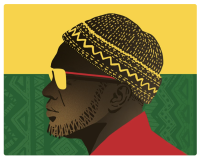 This year marks the 50th anniversary of the Portuguese Revolution and the centenary of the birth of one of the most influential leaders of the African decolonization movement. Transatlantically, Cuba played an important part militarily and politically in ejecting the colonizers, while Brazilian educator Paolo Freire was influenced by Cabral’s education for the people. Their ideas are very relevant today.
This year marks the 50th anniversary of the Portuguese Revolution and the centenary of the birth of one of the most influential leaders of the African decolonization movement. Transatlantically, Cuba played an important part militarily and politically in ejecting the colonizers, while Brazilian educator Paolo Freire was influenced by Cabral’s education for the people. Their ideas are very relevant today.
10.09.2024 | by Graham Douglas
 The Syndicate of Angolan Journalists (SJA) marked, on March 28th, another anniversary of an organization that entered the history of the country's democratization in a pioneering position that no one can take away from it, when talking about syndicalism in Angola. But not only that, the SJA will also be called upon to testify for future memory when talking about the achievement of freedom for all, which until then did not exist, with the performance of the state average - the only one that existed - a good mirror of this reality full of omissions and manipulations, where only the booming “voice of the owner” could be heard and little else.
The Syndicate of Angolan Journalists (SJA) marked, on March 28th, another anniversary of an organization that entered the history of the country's democratization in a pioneering position that no one can take away from it, when talking about syndicalism in Angola. But not only that, the SJA will also be called upon to testify for future memory when talking about the achievement of freedom for all, which until then did not exist, with the performance of the state average - the only one that existed - a good mirror of this reality full of omissions and manipulations, where only the booming “voice of the owner” could be heard and little else.
08.06.2024 | by Reginaldo Silva
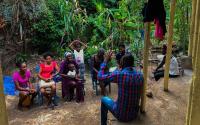 It is considered a treasure of Haitian culture, which reflects the society of the Caribbean country. The krik-krak, the art of telling riddles or tales (kont, in Creole) is a living tradition that unites and transcends generations through oral speech.
It is considered a treasure of Haitian culture, which reflects the society of the Caribbean country. The krik-krak, the art of telling riddles or tales (kont, in Creole) is a living tradition that unites and transcends generations through oral speech.
31.05.2024 | by Pedro Cardoso
 Further deepening tensions that already existed between people who had often been enemies and who were now forced to live as compatriots in territories forced upon them by external forces. The colonizers began to give better treatment to those who were “assimilated” and, even better, those who were lighter and had “fine” features. And so, in a process of mimesis in relation to the concepts that reward the ideology of racism, the ideology of colorism emerges in which, the lighter and with finer features the Black person is the more easily they ascend socially.
Further deepening tensions that already existed between people who had often been enemies and who were now forced to live as compatriots in territories forced upon them by external forces. The colonizers began to give better treatment to those who were “assimilated” and, even better, those who were lighter and had “fine” features. And so, in a process of mimesis in relation to the concepts that reward the ideology of racism, the ideology of colorism emerges in which, the lighter and with finer features the Black person is the more easily they ascend socially.
10.05.2024 | by Aoaní d'Alva
 It’s having for background the growing influence of the Internet/Social Networks in Angola and the extraordinary increase in information available from the most diverse sources, the importance of the role of the journalist among us has also been increasing, as is the case in other geographical contexts.
It’s having for background the growing influence of the Internet/Social Networks in Angola and the extraordinary increase in information available from the most diverse sources, the importance of the role of the journalist among us has also been increasing, as is the case in other geographical contexts.
04.04.2024 | by Reginaldo Silva
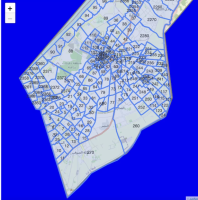 A investigação expõe o uso de um sistema chamado "Habsora" ("O Evangelho"), que utiliza tecnologia de Inteligência Artificial para gerar quatro tipos de alvos: alvo tático, alvo subterrâneo, alvo de energia e casas de família. Os alvos são produzidos de acordo com a probabilidade de que combatentes do Hamas estejam nas instalações. Para cada alvo, é anexado um arquivo que "estipula o número de civis que provavelmente serão mortos num ataque". Esses arquivos fornecem números e baixas calculadas, para que, quando as unidades de inteligência realizam um ataque, o exército saiba exatamente quantos civis provavelmente serão mortos.
A investigação expõe o uso de um sistema chamado "Habsora" ("O Evangelho"), que utiliza tecnologia de Inteligência Artificial para gerar quatro tipos de alvos: alvo tático, alvo subterrâneo, alvo de energia e casas de família. Os alvos são produzidos de acordo com a probabilidade de que combatentes do Hamas estejam nas instalações. Para cada alvo, é anexado um arquivo que "estipula o número de civis que provavelmente serão mortos num ataque". Esses arquivos fornecem números e baixas calculadas, para que, quando as unidades de inteligência realizam um ataque, o exército saiba exatamente quantos civis provavelmente serão mortos.
02.03.2024 | by Anaïs Nony
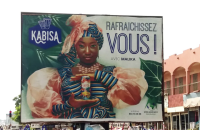 Four hundred years after the institution of slavery set off mechanisms devaluing African aesthetics, many on the continent still have a difficult relationship with African women’s hair. Granted, the natural hair movement has gathered momentum in African countries in the past five years, following earlier trends in the US and Europe. Many more young women today wear natural styles unapologetically just like Ms. Universe 2019. Yet resistance to natural hair, in particular afros and dreadlocks, persists.
Four hundred years after the institution of slavery set off mechanisms devaluing African aesthetics, many on the continent still have a difficult relationship with African women’s hair. Granted, the natural hair movement has gathered momentum in African countries in the past five years, following earlier trends in the US and Europe. Many more young women today wear natural styles unapologetically just like Ms. Universe 2019. Yet resistance to natural hair, in particular afros and dreadlocks, persists.
23.02.2024 | by Yarri Kamara
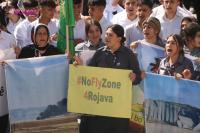 The undersigned express our solidarity with the Kurdish movement made up of children, young people, women, diverse identities and the Kurdish people in struggle for their rights to autonomy and self-determination. And through our personal and collective voice we want to let the world know what is happening in Kurdish territory right now.
The undersigned express our solidarity with the Kurdish movement made up of children, young people, women, diverse identities and the Kurdish people in struggle for their rights to autonomy and self-determination. And through our personal and collective voice we want to let the world know what is happening in Kurdish territory right now.
08.10.2023 | by várias
 The fact that BSS behaves like a feudal lord no longer surprises us in this “global south”. The same cannot be said of a publisher like Routledge, whose act of censorship does not honor its history (a history that began in 1836 and includes the publication of thinkers and scholars such as Adorno, Einstein, Russell, Popper, Wittgenstein, Jung, Bohm, Hayek, McLuhan, Marcuse, and Sartre). The irony, or hypocrisy, is that Taylor & Francis, the owner of Routledge, even ventures (and rightfully so!) to provide advice to its authors who are victims of harassment in academia...
The fact that BSS behaves like a feudal lord no longer surprises us in this “global south”. The same cannot be said of a publisher like Routledge, whose act of censorship does not honor its history (a history that began in 1836 and includes the publication of thinkers and scholars such as Adorno, Einstein, Russell, Popper, Wittgenstein, Jung, Bohm, Hayek, McLuhan, Marcuse, and Sartre). The irony, or hypocrisy, is that Taylor & Francis, the owner of Routledge, even ventures (and rightfully so!) to provide advice to its authors who are victims of harassment in academia...
11.09.2023 | by João Pedro George
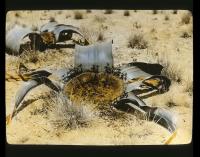 These brief notes focus mainly on possible steps towards the discussion about the decolonisation, or decolonisations, of botanical collections and practices at the University of Coimbra. They are not intended to delimit a unidirectional and hierarchical path of activities to be developed and are not a closed script for a decolonial rereading of the collections, which are a constant challenge, always presenting us with open questions and incomplete answers. My views and writings on this subject stem from a position of privilege as an academic working at the UC, which allows me the time, easier access to the collections under analysis and the freedom to appose narratives onto natural and cultural objects long disconnected from their contexts of origin; I am aware of my limitations in identifying additional perspectives and knowledges, which other voices will be able to bring to the open and ongoing debate.
These brief notes focus mainly on possible steps towards the discussion about the decolonisation, or decolonisations, of botanical collections and practices at the University of Coimbra. They are not intended to delimit a unidirectional and hierarchical path of activities to be developed and are not a closed script for a decolonial rereading of the collections, which are a constant challenge, always presenting us with open questions and incomplete answers. My views and writings on this subject stem from a position of privilege as an academic working at the UC, which allows me the time, easier access to the collections under analysis and the freedom to appose narratives onto natural and cultural objects long disconnected from their contexts of origin; I am aware of my limitations in identifying additional perspectives and knowledges, which other voices will be able to bring to the open and ongoing debate.
01.08.2023 | by António Carmo Gouveia
 The challenge remains: how to create a forward-thinking and progressive community, in which mothers are also represented and included? The work mothers and caregiver musicians cannot be perpetually undervalued or rendered invisible. Continuing to ignore the struggles mothers/caregivers face is unjust, unsustainable and will perpetually leave out many in our field.
The challenge remains: how to create a forward-thinking and progressive community, in which mothers are also represented and included? The work mothers and caregiver musicians cannot be perpetually undervalued or rendered invisible. Continuing to ignore the struggles mothers/caregivers face is unjust, unsustainable and will perpetually leave out many in our field.
01.08.2023 | by Sara Serpa
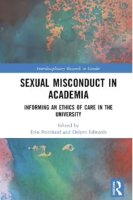 The publication of the book was decisive for our mobilization as a collective and for our decision to gather testimonial and documentary evidence that corroborate the various types of violence described in the mentioned chapter. In this sense, we note with great concern the unavailability for sale of the book.
The publication of the book was decisive for our mobilization as a collective and for our decision to gather testimonial and documentary evidence that corroborate the various types of violence described in the mentioned chapter. In this sense, we note with great concern the unavailability for sale of the book.
11.07.2023 | by várias
 Intended to inspire young people interested in the sport of football, a bronze statue to the Portuguese footballer Cristiano Ronaldo was installed in December 2021 in the coastal town of Calangute, Goa (India). However, rather than having said desired effect, the statue received immediate backlash by local residents that staged a protest with black flags. To understand the contention over the statue, in this essay I will concisely unpack the controversy behind the statue and a history of Portuguese colonialism that its existence provokes. Arguing, although created for innocent reasons, the statue to the Portuguese footballer is a contemporary example of cultural neocolonialism and that the statue has no place in Goa, or anywhere else within India.
Intended to inspire young people interested in the sport of football, a bronze statue to the Portuguese footballer Cristiano Ronaldo was installed in December 2021 in the coastal town of Calangute, Goa (India). However, rather than having said desired effect, the statue received immediate backlash by local residents that staged a protest with black flags. To understand the contention over the statue, in this essay I will concisely unpack the controversy behind the statue and a history of Portuguese colonialism that its existence provokes. Arguing, although created for innocent reasons, the statue to the Portuguese footballer is a contemporary example of cultural neocolonialism and that the statue has no place in Goa, or anywhere else within India.
26.04.2023 | by Andrew Nunes
 To understand Trinidad, there can be no fixed, predetermined “root identity” in the traditional, categorical sense. The island’s culture claims its right to opacity, resisting simplification, even while its core remains Creole. Too many people, too many cultures have met - and clashed - across its ports and borders. For this reason, Trinidad cannot be singular; it is plural, maternal. Like a mother, it tells stories, at first misunderstood by its children, yet always offering a lesson. Like a mother, it lets its children wander before calling them back to the tropics. This island is a birth of worlds.
To understand Trinidad, there can be no fixed, predetermined “root identity” in the traditional, categorical sense. The island’s culture claims its right to opacity, resisting simplification, even while its core remains Creole. Too many people, too many cultures have met - and clashed - across its ports and borders. For this reason, Trinidad cannot be singular; it is plural, maternal. Like a mother, it tells stories, at first misunderstood by its children, yet always offering a lesson. Like a mother, it lets its children wander before calling them back to the tropics. This island is a birth of worlds.  Dear racialized friend, we both feel the weight, so let me end here as it’s getting late, when we talk about racism, whiteness and privilege, don't ever forget to create contexts, don't repeat the same claims as if they were refrains, don't talk about the system as if it operated and oppressed in the same way everywhere, with no aims or changes or such affairs, or as if the context of blacks in the USA was the same as that of blacks in Portugal, and of blacks in Brazil, and from there to blacks in Guinea.
Dear racialized friend, we both feel the weight, so let me end here as it’s getting late, when we talk about racism, whiteness and privilege, don't ever forget to create contexts, don't repeat the same claims as if they were refrains, don't talk about the system as if it operated and oppressed in the same way everywhere, with no aims or changes or such affairs, or as if the context of blacks in the USA was the same as that of blacks in Portugal, and of blacks in Brazil, and from there to blacks in Guinea.  The Black body is one of the boring, limiting terms that abound in decolonial discourse. The fact that it is an unknown or almost unknown term in Guinea-Bissau (I’ve no idea if I need statistics to say this), makes me wonder: how do you decolonize Africa without Africans being involved?
The Black body is one of the boring, limiting terms that abound in decolonial discourse. The fact that it is an unknown or almost unknown term in Guinea-Bissau (I’ve no idea if I need statistics to say this), makes me wonder: how do you decolonize Africa without Africans being involved?  This letter from a father to his son, who nevertheless grew up with different references, shows this continuity (the son was lucky enough to see two terms of a Black president, an example to the African American community in terms of representation and ambition). United by fear and anger, they underpin the idea of an imagined community, since the Black body demolishes any theory or story of personal success (studies, money, status) as long as it’s marked by discrimination.
This letter from a father to his son, who nevertheless grew up with different references, shows this continuity (the son was lucky enough to see two terms of a Black president, an example to the African American community in terms of representation and ambition). United by fear and anger, they underpin the idea of an imagined community, since the Black body demolishes any theory or story of personal success (studies, money, status) as long as it’s marked by discrimination.  After departing from Germany, they settled in Australia and began archiving their visual memories, which were eventually sent to Iwalewahaus. Their professional legacy has since been digitized and shared with the Centre of Black Culture and International Understanding (CBCIU) in Osogbo, Nigeria. Their collection has been researched in the frame of collaborative research projects and individual PhD topics, questioning Ulli and Georgina Beiers legacy and its inherent dominant narratives as well as contributing to a broader understanding of Modernisms. Currently, Iwalewahaus as an institution still feeds from its initial strategies, trying to navigate between different stakeholders and ethical commitment.
After departing from Germany, they settled in Australia and began archiving their visual memories, which were eventually sent to Iwalewahaus. Their professional legacy has since been digitized and shared with the Centre of Black Culture and International Understanding (CBCIU) in Osogbo, Nigeria. Their collection has been researched in the frame of collaborative research projects and individual PhD topics, questioning Ulli and Georgina Beiers legacy and its inherent dominant narratives as well as contributing to a broader understanding of Modernisms. Currently, Iwalewahaus as an institution still feeds from its initial strategies, trying to navigate between different stakeholders and ethical commitment.  Material and bodily relations and interactions are of fundamental importance for framing cannibalism of the technologies of conquest and of ethnographic museums specifically. The museum instead is not seen as an institution but as part of the bigger continuum of conquest and it’s embodiment by the Western powers. The body is not seen as a monad, as a discrete and spatially limited category, but as a source, a force and an opportunity, as a site of otherness within oneself but also as limited by difference.
Material and bodily relations and interactions are of fundamental importance for framing cannibalism of the technologies of conquest and of ethnographic museums specifically. The museum instead is not seen as an institution but as part of the bigger continuum of conquest and it’s embodiment by the Western powers. The body is not seen as a monad, as a discrete and spatially limited category, but as a source, a force and an opportunity, as a site of otherness within oneself but also as limited by difference.  This year marks the 50th anniversary of the Portuguese Revolution and the centenary of the birth of one of the most influential leaders of the African decolonization movement. Transatlantically, Cuba played an important part militarily and politically in ejecting the colonizers, while Brazilian educator Paolo Freire was influenced by Cabral’s education for the people. Their ideas are very relevant today.
This year marks the 50th anniversary of the Portuguese Revolution and the centenary of the birth of one of the most influential leaders of the African decolonization movement. Transatlantically, Cuba played an important part militarily and politically in ejecting the colonizers, while Brazilian educator Paolo Freire was influenced by Cabral’s education for the people. Their ideas are very relevant today.
 The Syndicate of Angolan Journalists (SJA) marked, on March 28th, another anniversary of an organization that entered the history of the country's democratization in a pioneering position that no one can take away from it, when talking about syndicalism in Angola. But not only that, the SJA will also be called upon to testify for future memory when talking about the achievement of freedom for all, which until then did not exist, with the performance of the state average - the only one that existed - a good mirror of this reality full of omissions and manipulations, where only the booming “voice of the owner” could be heard and little else.
The Syndicate of Angolan Journalists (SJA) marked, on March 28th, another anniversary of an organization that entered the history of the country's democratization in a pioneering position that no one can take away from it, when talking about syndicalism in Angola. But not only that, the SJA will also be called upon to testify for future memory when talking about the achievement of freedom for all, which until then did not exist, with the performance of the state average - the only one that existed - a good mirror of this reality full of omissions and manipulations, where only the booming “voice of the owner” could be heard and little else.  It is considered a treasure of Haitian culture, which reflects the society of the Caribbean country. The krik-krak, the art of telling riddles or tales (kont, in Creole) is a living tradition that unites and transcends generations through oral speech.
It is considered a treasure of Haitian culture, which reflects the society of the Caribbean country. The krik-krak, the art of telling riddles or tales (kont, in Creole) is a living tradition that unites and transcends generations through oral speech.  Further deepening tensions that already existed between people who had often been enemies and who were now forced to live as compatriots in territories forced upon them by external forces. The colonizers began to give better treatment to those who were “assimilated” and, even better, those who were lighter and had “fine” features. And so, in a process of mimesis in relation to the concepts that reward the ideology of racism, the ideology of colorism emerges in which, the lighter and with finer features the Black person is the more easily they ascend socially.
Further deepening tensions that already existed between people who had often been enemies and who were now forced to live as compatriots in territories forced upon them by external forces. The colonizers began to give better treatment to those who were “assimilated” and, even better, those who were lighter and had “fine” features. And so, in a process of mimesis in relation to the concepts that reward the ideology of racism, the ideology of colorism emerges in which, the lighter and with finer features the Black person is the more easily they ascend socially.  It’s having for background the growing influence of the Internet/Social Networks in Angola and the extraordinary increase in information available from the most diverse sources, the importance of the role of the journalist among us has also been increasing, as is the case in other geographical contexts.
It’s having for background the growing influence of the Internet/Social Networks in Angola and the extraordinary increase in information available from the most diverse sources, the importance of the role of the journalist among us has also been increasing, as is the case in other geographical contexts.  A investigação expõe o uso de um sistema chamado "Habsora" ("O Evangelho"), que utiliza tecnologia de Inteligência Artificial para gerar quatro tipos de alvos: alvo tático, alvo subterrâneo, alvo de energia e casas de família. Os alvos são produzidos de acordo com a probabilidade de que combatentes do Hamas estejam nas instalações. Para cada alvo, é anexado um arquivo que "estipula o número de civis que provavelmente serão mortos num ataque". Esses arquivos fornecem números e baixas calculadas, para que, quando as unidades de inteligência realizam um ataque, o exército saiba exatamente quantos civis provavelmente serão mortos.
A investigação expõe o uso de um sistema chamado "Habsora" ("O Evangelho"), que utiliza tecnologia de Inteligência Artificial para gerar quatro tipos de alvos: alvo tático, alvo subterrâneo, alvo de energia e casas de família. Os alvos são produzidos de acordo com a probabilidade de que combatentes do Hamas estejam nas instalações. Para cada alvo, é anexado um arquivo que "estipula o número de civis que provavelmente serão mortos num ataque". Esses arquivos fornecem números e baixas calculadas, para que, quando as unidades de inteligência realizam um ataque, o exército saiba exatamente quantos civis provavelmente serão mortos.  Four hundred years after the institution of slavery set off mechanisms devaluing African aesthetics, many on the continent still have a difficult relationship with African women’s hair. Granted, the natural hair movement has gathered momentum in African countries in the past five years, following earlier trends in the US and Europe. Many more young women today wear natural styles unapologetically just like Ms. Universe 2019. Yet resistance to natural hair, in particular afros and dreadlocks, persists.
Four hundred years after the institution of slavery set off mechanisms devaluing African aesthetics, many on the continent still have a difficult relationship with African women’s hair. Granted, the natural hair movement has gathered momentum in African countries in the past five years, following earlier trends in the US and Europe. Many more young women today wear natural styles unapologetically just like Ms. Universe 2019. Yet resistance to natural hair, in particular afros and dreadlocks, persists.  The undersigned express our solidarity with the Kurdish movement made up of children, young people, women, diverse identities and the Kurdish people in struggle for their rights to autonomy and self-determination. And through our personal and collective voice we want to let the world know what is happening in Kurdish territory right now.
The undersigned express our solidarity with the Kurdish movement made up of children, young people, women, diverse identities and the Kurdish people in struggle for their rights to autonomy and self-determination. And through our personal and collective voice we want to let the world know what is happening in Kurdish territory right now.  The fact that BSS behaves like a feudal lord no longer surprises us in this “global south”. The same cannot be said of a publisher like Routledge, whose act of censorship does not honor its history (a history that began in 1836 and includes the publication of thinkers and scholars such as Adorno, Einstein, Russell, Popper, Wittgenstein, Jung, Bohm, Hayek, McLuhan, Marcuse, and Sartre). The irony, or hypocrisy, is that Taylor & Francis, the owner of Routledge, even ventures (and rightfully so!) to provide advice to its authors who are victims of harassment in academia...
The fact that BSS behaves like a feudal lord no longer surprises us in this “global south”. The same cannot be said of a publisher like Routledge, whose act of censorship does not honor its history (a history that began in 1836 and includes the publication of thinkers and scholars such as Adorno, Einstein, Russell, Popper, Wittgenstein, Jung, Bohm, Hayek, McLuhan, Marcuse, and Sartre). The irony, or hypocrisy, is that Taylor & Francis, the owner of Routledge, even ventures (and rightfully so!) to provide advice to its authors who are victims of harassment in academia...  These brief notes focus mainly on possible steps towards the discussion about the decolonisation, or decolonisations, of botanical collections and practices at the University of Coimbra. They are not intended to delimit a unidirectional and hierarchical path of activities to be developed and are not a closed script for a decolonial rereading of the collections, which are a constant challenge, always presenting us with open questions and incomplete answers. My views and writings on this subject stem from a position of privilege as an academic working at the UC, which allows me the time, easier access to the collections under analysis and the freedom to appose narratives onto natural and cultural objects long disconnected from their contexts of origin; I am aware of my limitations in identifying additional perspectives and knowledges, which other voices will be able to bring to the open and ongoing debate.
These brief notes focus mainly on possible steps towards the discussion about the decolonisation, or decolonisations, of botanical collections and practices at the University of Coimbra. They are not intended to delimit a unidirectional and hierarchical path of activities to be developed and are not a closed script for a decolonial rereading of the collections, which are a constant challenge, always presenting us with open questions and incomplete answers. My views and writings on this subject stem from a position of privilege as an academic working at the UC, which allows me the time, easier access to the collections under analysis and the freedom to appose narratives onto natural and cultural objects long disconnected from their contexts of origin; I am aware of my limitations in identifying additional perspectives and knowledges, which other voices will be able to bring to the open and ongoing debate.  The challenge remains: how to create a forward-thinking and progressive community, in which mothers are also represented and included? The work mothers and caregiver musicians cannot be perpetually undervalued or rendered invisible. Continuing to ignore the struggles mothers/caregivers face is unjust, unsustainable and will perpetually leave out many in our field.
The challenge remains: how to create a forward-thinking and progressive community, in which mothers are also represented and included? The work mothers and caregiver musicians cannot be perpetually undervalued or rendered invisible. Continuing to ignore the struggles mothers/caregivers face is unjust, unsustainable and will perpetually leave out many in our field.  The publication of the book was decisive for our mobilization as a collective and for our decision to gather testimonial and documentary evidence that corroborate the various types of violence described in the mentioned chapter. In this sense, we note with great concern the unavailability for sale of the book.
The publication of the book was decisive for our mobilization as a collective and for our decision to gather testimonial and documentary evidence that corroborate the various types of violence described in the mentioned chapter. In this sense, we note with great concern the unavailability for sale of the book.  Intended to inspire young people interested in the sport of football, a bronze statue to the Portuguese footballer Cristiano Ronaldo was installed in December 2021 in the coastal town of Calangute, Goa (India). However, rather than having said desired effect, the statue received immediate backlash by local residents that staged a protest with black flags. To understand the contention over the statue, in this essay I will concisely unpack the controversy behind the statue and a history of Portuguese colonialism that its existence provokes. Arguing, although created for innocent reasons, the statue to the Portuguese footballer is a contemporary example of cultural neocolonialism and that the statue has no place in Goa, or anywhere else within India.
Intended to inspire young people interested in the sport of football, a bronze statue to the Portuguese footballer Cristiano Ronaldo was installed in December 2021 in the coastal town of Calangute, Goa (India). However, rather than having said desired effect, the statue received immediate backlash by local residents that staged a protest with black flags. To understand the contention over the statue, in this essay I will concisely unpack the controversy behind the statue and a history of Portuguese colonialism that its existence provokes. Arguing, although created for innocent reasons, the statue to the Portuguese footballer is a contemporary example of cultural neocolonialism and that the statue has no place in Goa, or anywhere else within India. 